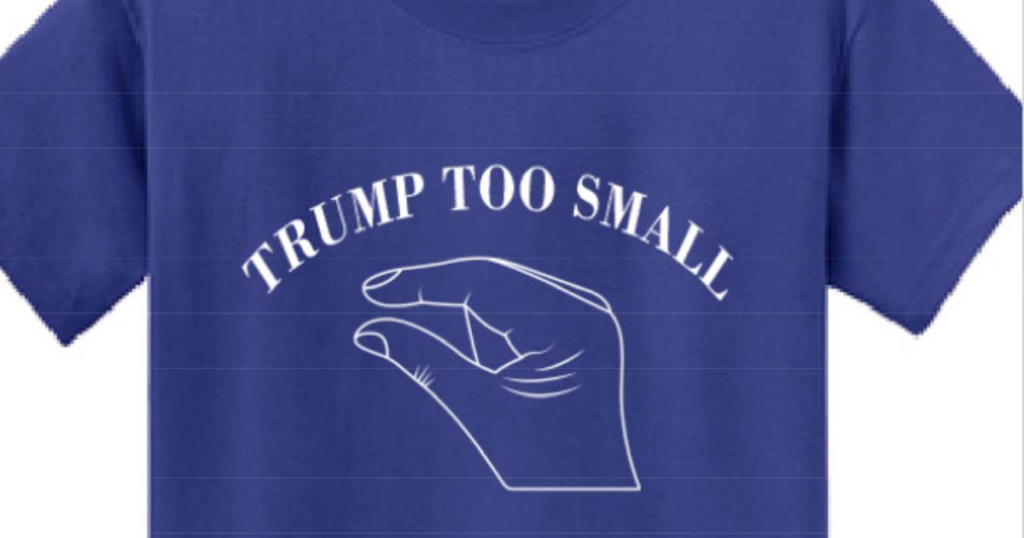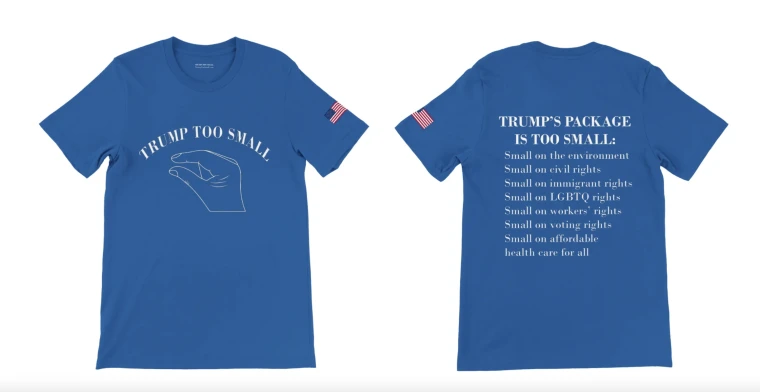In a unanimous decision on Thursday, the U.S. Supreme Court rejected a California lawyer’s attempt to trademark the phrase “Trump too small,” a reference to a crude joke made about former President Donald Trump. The court ruled in favor of the U.S. Patent and Trademark Office, which had initially denied the application, and overturned a U.S. Court of Appeals for the Federal Circuit ruling.

Justice Clarence Thomas, writing for the court, stated that “history and tradition” supported the notion that restrictions on trademarking certain names do not violate the First Amendment of the Constitution. He added, “We see no reason to disturb this longstanding tradition, which supports the restriction of the use of another’s name in a trademark.”
The phrase “Trump too small” originated from a 2016 Republican presidential primary debate featuring then-candidate Donald Trump and Senator Marco Rubio of Florida. During the debate, Rubio joked about Trump’s allegedly small hands, implying a correspondingly small penis.

Steve Elster, an employment lawyer and progressive activist, applied to register the phrase “Trump too small” with the trademark office in 2018. The slogan appeared on the front of a T-shirt Elster created, with “Trump’s package is too small” printed on the back. In his application, Elster stated that he intended to spread a message that “some features of President Trump and his policies are diminutive.”
However, the trademark office rejected Elster’s application, arguing that the public would immediately associate the word “Trump” with the then-president. Under established law, Trump’s written consent would be required for the trademark to be approved.

The Supreme Court’s decision to uphold the trademark office’s rejection of Elster’s application reaffirms the long-standing tradition of restricting the use of another person’s name in a trademark without their consent. This ruling sets a precedent for future cases involving the trademarking of names, particularly those of public figures.
While some may view the phrase “Trump too small” as a form of political commentary or satire, the court’s decision emphasizes the importance of respecting an individual’s right to control the use of their name in a commercial context, regardless of their public status or the nature of the message being conveyed.
As the nation continues to grapple with the balance between free speech and the protection of intellectual property rights, the Supreme Court’s unanimous decision in this case provides clarity on the limitations of trademarking names without consent.



